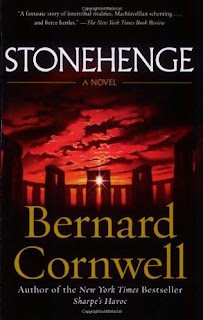
I first had read this as part of a college course reading list, I believe it was an international relations course.
The story is set in an abbey in the southwestern United States. An order of monks seeks to preserve knowledge following a nuclear holocaust. The story is divided into three parts separated over thousands of years, as mankind gradually recovers knowledge and technology (with attendant challenges).
I like the book a lot. I remember sections quite vividly, for example the very last words of part I, and the too-accurate voicing of government-speak in Part III.
I read that the book has never been out of print since its initial print run. And that the author participated in bombing runs over Monte Cassino in World War II, which gave him the idea of monks preserving knowledge in the wake of destruction. It really works well.
Compare against this book, also very effective and containing many similar strands.
 I had liked other Fromkin books quite a bit (Europe's Last Summer, A Peace to End All Peace), but didn't find this very compelling.
I had liked other Fromkin books quite a bit (Europe's Last Summer, A Peace to End All Peace), but didn't find this very compelling.





















